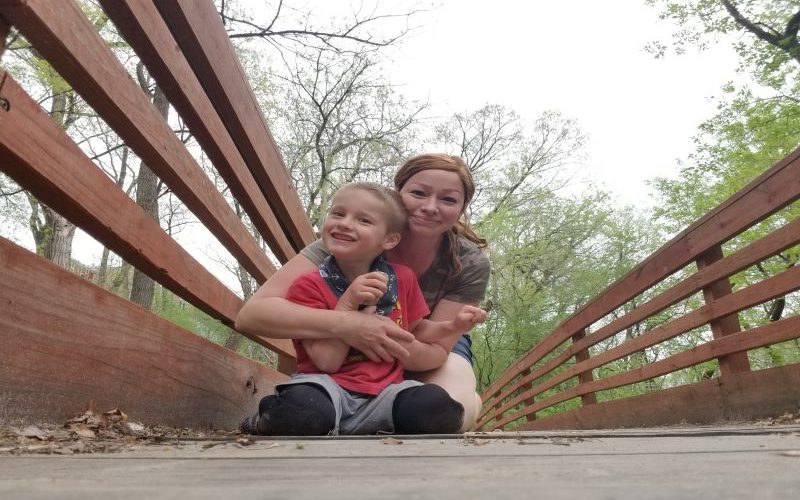Can a depressed caregiver really care?

Victoria Tkachuk
I'm from the Midwest region of the United States and I have four children, three neurotypical daughters and one son with dyskinetic cerebral palsy. My...

Last month was Mental Health Awareness month, it's important to talk about how caregivers live with their own mental health issues.
In the interest of transparency, I want to share my own struggles with depression, in the hopes my experience might speak to other parents in a similar situation.
Long before I was a parent, let alone that of a special needs son, I have lived with chronic depression.
It started in my teen years, out of the blue, and despite the efforts of well-intentioned parents and psychologists, I never got a handle on how to cope with it.
Later, in college, I suffered a severe bout of situational depression for which I was prescribed both an anti-depressant and anti-anxiety medication, the former of which made me numb to any emotion, and the latter gave me terrific nightmares.
After about a year, I weaned off the anti-depressant and was fairly high functioning, though not under the care of any medical professional.
I thought I had “beat” my illness.
Allow me to pause here and acknowledge that the stigma of mental illness is still very real and present in modern society.
Recent years have seen an uptick in awareness and acceptance of them within certain communities.
But, awash in free society is the notion that mental disorders are atypical, foreign, tandem with odd behaviors, and generally inconvenient.
And, despite our self confidence that we are not influenced by societal beliefs, the reality is they play a part in our decision making whether we like it or not.
Back to my story.
I was in my early twenties, living with my sister, and working as a caregiver for children and adults with disabilities.
My clients ranged from “developmental disorder” to autism to PTSD to ADHD and so on.
I loved my clients and tried my best to give them each what they needed in me: a companion, a taskmaster, a teacher, etc, and tried harder not to get attached to them (spoiler: I failed).
My job was challenging and sometimes heartbreaking, but I loved it and cherished being able to help my clients for as long as I could.
About eight months into this job, my depression started to eat at me again.
No doubt the combined stress of my job and being an empathetic person by nature was contributing.
Around my25th birthday my hair started falling out.
Within a month I was bald, and this sent me into another downward spiral, thinking my value was in something as superficial as my appearance.
Funny how life's earlier events seem to have been pieces to a bigger puzzle I couldn't see at the time.
This cycle of being pretty functional, then experiencing an event I couldn't cope with, leading into several months of hopelessness, slowly climbing out of it, functioning, then crashing down again happened many times over my young adult life.
I still didn't believe that I was really ill, and in need of professional care, as well as self care (like eating well, sleeping normally, journaling my thoughts).
It wasn't until just before my40th birthday that I sought medical treatment for my ongoing depression, finally acknowledging that it wasn't going away by itself, or with time, or with my willpower.
Now let me draw a parallel, that these statements are true of our dear ones' conditions as well: the disabilities won't going away by themselves.
Our kids won't “grow out of it” as some might suggest. And all the love and desire we as loving caregivers have for them won't make them wake up neurotypical one day.
But in the end, none of that really matters, does it?
What society at large thinks about our special needs fellows doesn't matter either.
We are who we are, and we're not who we're not.
We can suffer, we can have pain, we can not succeed in certain measures, we can be seen as atypical, odd, and inconvenient.
We live our lives, and love the ones we care for, fragile that we both are. That is what matters.
So, can a depressed caregiver really care? Resoundingly, loudly, I assert yes.
She may not be able to keep all her emotions about caregiving to herself, she might cry more, or need more verbal assurance, or to have things repeated (often).
But does she care about who she's caring for? Absolutely.
(Note: I'm now under the care of a good physician, whose approach to my mental health is holistic and measured; he urges me often to go easy on myself, do a little at a time, take breaks, adhere to schedules as best I can, and not get too wrapped up in always performing a certain way. I think this is good advice for all caregivers, too.)


